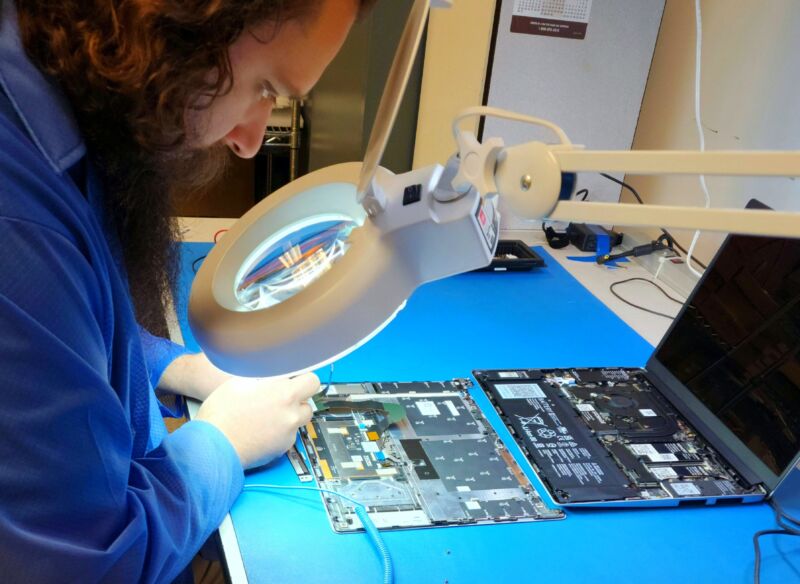
Framework, makers of the modular, repairable Framework laptop, has started offering a refurbished version, along with packs of its signature USB-C expansion cards. Lots of hardware makers offer refurbished goods, but Framework’s unique position in the laptop market makes this announcement a bit different.
Framework’s blog post announcing the new market notes the company’s commitment to “remaking consumer electronics to respect people and the planet,” and that the company’s work to offer previously purchased devices is part of that. Buying refurbished means the laptop (and the planet) sees more use for its already-manufactured parts. And, of course, there’s a discount: Refurbished 11th-generation DIY Edition laptops start at $600 in Framework’s refurbished marketplace, while a new 11th-generation model is at least $680.
Most of the refurbished models come from returns within the laptops’ 30-day guarantee, Framework writes in its post. The laptops go through testing and cleaning in a New Jersey service center, then have parts replaced as needed. Framework notes it can do this work in Europe or Australia, too, but—in a subtle bit of QA marketing—claims it has “received so few returns” that it can’t build that inventory.
The specific cosmetic quality of each refurbished device will be listed on the product ordering page. Framework states it has “set the limits to be pretty stringent” for its initial sales. That means no more than 10 scratches on the top cover, with none over 2 cm in length, and similar limitations for the sides and keyboard case, although it allows up to 30 on the bottom. No dents, cracks, breaks, or chips are allowed anywhere. Each device also comes with the same one-year warranty as new products.
These refurbished DIY-edition laptops don’t come with any memory, storage, Wi-Fi cards, power cables, operating systems, or expansion cards. For that last bit, at least, Framework offers four-packs of refurbished expansion cards, the square, hot-swappable USB-C converters that slot into the laptop’s sides. You get two USB-C, one USB-A, and 1 HDMI card for $30, a notable discount over the $20 each new card typically costs.
Framework’s refurbished offerings show a commitment to its circular-economy values, creating interesting opportunities for its customers. If almost any part of a refurbished device is too dinged up for your liking, at first or over time, you can almost certainly replace it. If buying into 11th-generation Intel-based hardware now makes you feel itchy about upgrades, the company has, so far, offered in-place mainboards you can install into existing models.
More than 54 million tons of electronics are shredded every year across the globe. Framework’s small start in refurbished goods makes sense for the company and hopefully keeps working devices out of that waste stream.
https://arstechnica.com/?p=1889883

